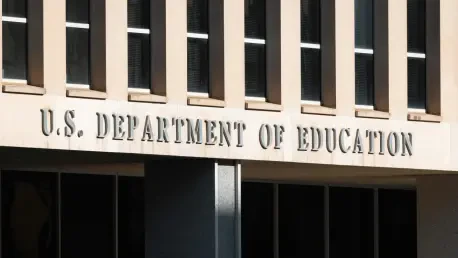The United States Congress has recently become the center of a heated debate regarding the future of the U.S. Department of Education. As prominent lawmakers fiercely argue over the direction of the nation’s educational system, the discussions have shed light on contrasting visions that could significantly reshape America’s education landscape.
A Battle Over Federal Education Control
Federal control versus state autonomy in education has been a contentious issue, with Republicans advocating for the dismantling of the U.S. Department of Education and Democrats striving to preserve its functions. The ideological divide is stark, with each party proposing legislation that reflects their vision for America’s educational future. The implications of these debates are far-reaching, potentially impacting the delivery of educational services nationwide.
Key Moments and Legislative Proposals
The congressional debate has brought to the forefront a variety of legislative efforts aimed at either dismantling or preserving the Education Department.
Legislative Measures by Republicans
Republican legislators have introduced several bills aimed at closing the U.S. Department of Education and redistributing its responsibilities. Proposals include transferring student loan programs to the Treasury Department, special education oversight to the Department of Health and Human Services (HHS), and civil rights enforcement to the Department of Justice. One notable bill, the Returning Education to Our States Act, introduced by Senator Mike Rounds of South Dakota, seeks to convert federal education funding into block grants for states, thus increasing state control over educational spending.
Democrat Initiatives to Preserve the Department
In contrast, Democratic lawmakers are working to protect the U.S. Department of Education from being dismantled. Representative Suzanne Bonamici of Oregon introduced a resolution condemning such efforts, emphasizing the department’s critical role. Senator Adam Schiff of California and Representative Jahana Hayes of Connecticut have underscored the importance of maintaining the department’s current functions to support special education and financial aid for students.
Actions Reflecting Trump Administration’s Stance
The Trump administration’s actions have aligned with Republican efforts, demonstrating a commitment to reducing the size of the federal government. Significant layoffs within the Education Department, cancellation of contracts for its research arm, freezing of grants for teacher preparation programs, and the reversal of federal COVID-19 emergency funding extensions illustrate this broader strategy.
Opposition Concerns and Accountability Issues
Opponents of dismantling the Education Department argue that converting federal funds to block grants could undermine accountability and exacerbate educational disparities among states. They contend that the current system ensures consistent oversight and efficacy in addressing educational needs across the country, which might be compromised under the proposed changes.
Insights and Long-Term Implications
A closer examination of these legislative efforts reveals insights into potential shifts in federal education policy and their broader impact.
Shifts in Federal Education Policy
The proposals to either dismantle or preserve the Education Department highlight a potential shift in federal education policy. Republicans advocate for reducing federal intervention and promoting state autonomy, while Democrats stress the importance of a centralized approach to ensure equitable access to education and support for vulnerable student populations.
Broader Educational Impact
The outcomes of this debate hold significant implications for students who depend on special education services and financial aid, as well as for broader educational programs facilitated by the department. Changes could lead to substantial adjustments in how educational services are administered and funded nationwide.
Future Congressional Actions
The fate of the U.S. Department of Education ultimately rests in the hands of Congress, requiring a supermajority for approval of major changes. The decisions made in these legislative efforts will shape federal involvement in education and influence educational policy and funding in the United States for years to come.
Conclusion
The congressional debate over the future of the U.S. Department of Education has highlighted deep ideological divides and the profound impact legislative decisions can have on the nation’s educational system. As lawmakers continue to negotiate, the outcome will significantly influence federal education policy, potentially reshaping how education is administered across the country. Future congressional actions will be critical in determining the balance between federal oversight and state control, with lasting consequences for American students’ access to quality education.









